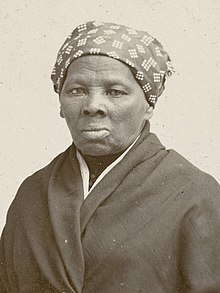Celebrating Harriet Tubman

Rosa said no and Susan said no man is good enough to govern any woman without her consent.
“There was one of two things I had a right to, liberty or death; if I could not have one, I would have the other.”
Harriet Tubman
In honor of Women’s History Month, I chose to write about Harriet Tubman. I cannot imagine how hard it must have been to survive the life she was born into, let alone save approximately 70 other people.
Harriet Tubman was born into slavery
Born around 1822 in Dorchester County, Maryland, Harriet Tubman’s early life was marked by cruelty and oppression. Despite enduring the horrors of bondage, Tubman possessed an unyielding spirit and a fierce determination to break free from the chains of slavery.
In 1849, Tubman made the daring decision to escape to freedom, embarking on a perilous journey northward via the Underground Railroad. Risking life and limb, she navigated treacherous terrain and eluded capture, eventually reaching the safety of Philadelphia. But Tubman’s quest for freedom did not end with her own emancipation; fueled by a deep-seated desire to liberate others, she returned to the South time and again, leading dozens of enslaved individuals to freedom along the Underground Railroad.
Harriet Tubman’s nickname was Moses
Tubman’s remarkable courage and ingenuity earned her the nickname “Moses” among those she rescued, a testament to her unwavering commitment to the cause of freedom. Despite the ever-present threat of capture and violence, she fearlessly traversed the country, guiding fugitive slaves to safety and inspiring hope in the hearts of countless others.
In addition to her role as a conductor on the Underground Railroad, Tubman also played a pivotal role in the fight for abolition and women’s suffrage. During the Civil War, she served as a spy, nurse, and scout for the Union Army, using her intimate knowledge of the South to aid in military campaigns and rescue missions. Her bravery and resourcefulness earned her the respect and admiration of generals and soldiers alike.
Tubman’s tireless advocacy for freedom
Tubman’s legacy extends far beyond her exploits during the Civil War. Her tireless advocacy for freedom and equality laid the groundwork for significant legal and social advancements in the years to come. In 1865, following the end of the Civil War and the passage of the Thirteenth Amendment, slavery was formally abolished in the United States—a monumental victory that owed much to Tubman’s tireless efforts.
Tubman’s unwavering commitment to the cause of women’s suffrage helped pave the way for the ratification of the Nineteenth Amendment in 1920, which granted women the right to vote. Her role as a pioneering figure in the fight for both racial and gender equality continues to inspire generations of activists and advocates to this day
As we celebrate Women’s History Month, let us honor the enduring legacy of Harriet Tubman—a woman whose courage, resilience, and unwavering commitment to justice continue to inspire us all. May her extraordinary life serve as a reminder of the power of perseverance and the profound impact that one individual can have on the course of history.
Check back tomorrow for the next woman featured in this series.
Sign up for Kristy's Newsletter!
Get all the updates on upcoming books and events!




